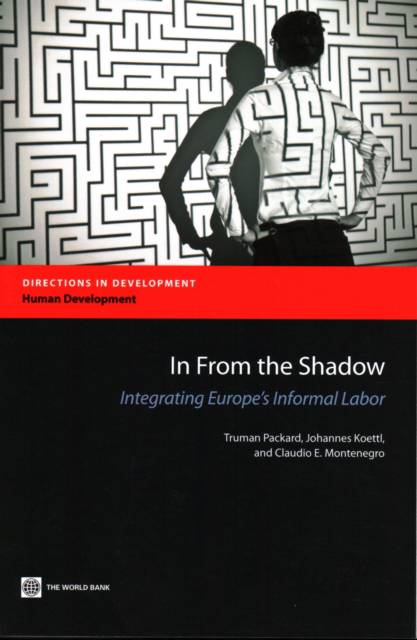
En raison d'une grêve chez bpost, votre commande pourrait être retardée. Vous avez besoin d’un livre rapidement ? Nos magasins vous accueillent à bras ouverts !
- Retrait gratuit dans votre magasin Club
- 7.000.000 titres dans notre catalogue
- Payer en toute sécurité
- Toujours un magasin près de chez vous
En raison de la grêve chez bpost, votre commande pourrait être retardée. Vous avez besoin d’un livre rapidement ? Nos magasins vous accueillent à bras ouverts !
- Retrait gratuit dans votre magasin Club
- 7.000.0000 titres dans notre catalogue
- Payer en toute sécurité
- Toujours un magasin près de chez vous
In from the Shadow
Integrating Europe's Informal Labor
Truman Packard, Johannes Koettl, Claudio Montenegro
44,45 €
+ 88 points
Description
What to do about the extent of unregulated informal employment and the size of the shadow economy is a dilemma that has been gaining urgency, particularly in Europe's periphery. The forces that accompany globalization put a premium on mobility and skill-renewal. Rapid population ageing will require that people work longer and be far more productive. To achieve this, social and economic institutions have to be more pro-employment, encouraging greater participation in the formal economy. And looking ahead, public financial resources will be increasingly scarce, giving urgency to measures that can significantly and sustainably increase tax revenue. This book is about workers in Europe who earn a living working full or part-time in untaxed markets for goods, services and labor.
Spécifications
Parties prenantes
- Auteur(s) :
- Editeur:
Contenu
- Nombre de pages :
- 192
- Langue:
- Anglais
- Collection :
Caractéristiques
- EAN:
- 9780821395493
- Date de parution :
- 13-07-12
- Format:
- Livre broché
- Format numérique:
- Trade paperback (VS)
- Dimensions :
- 152 mm x 229 mm
- Poids :
- 267 g

Les avis
Nous publions uniquement les avis qui respectent les conditions requises. Consultez nos conditions pour les avis.






